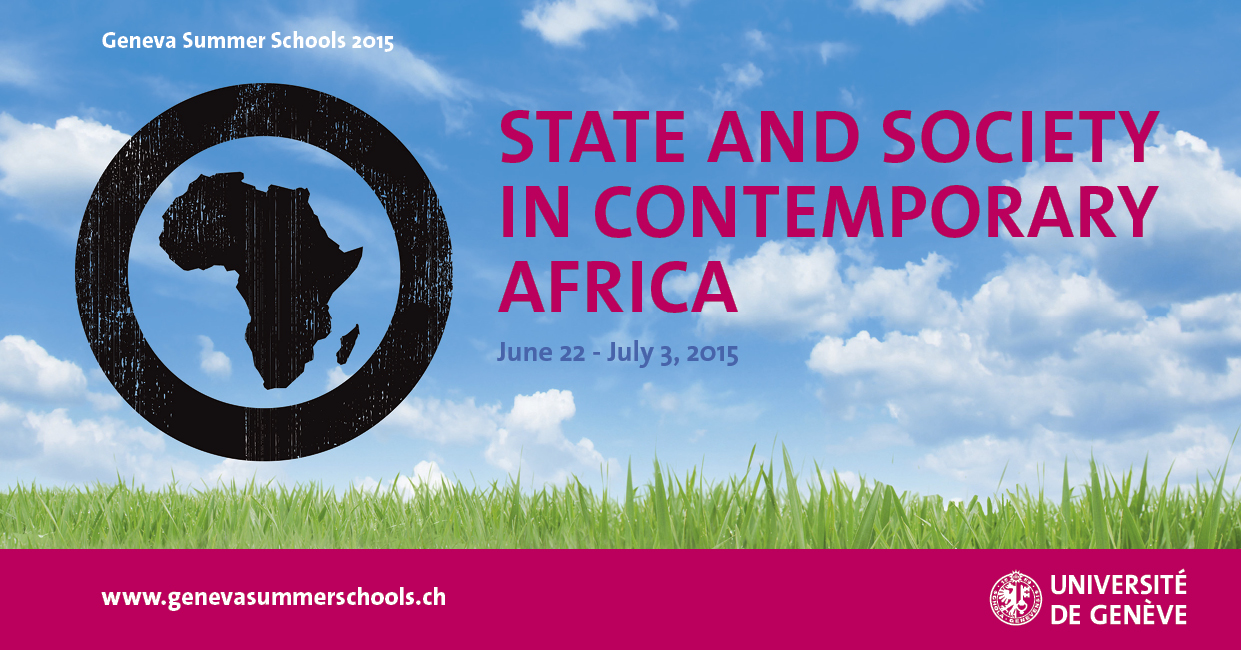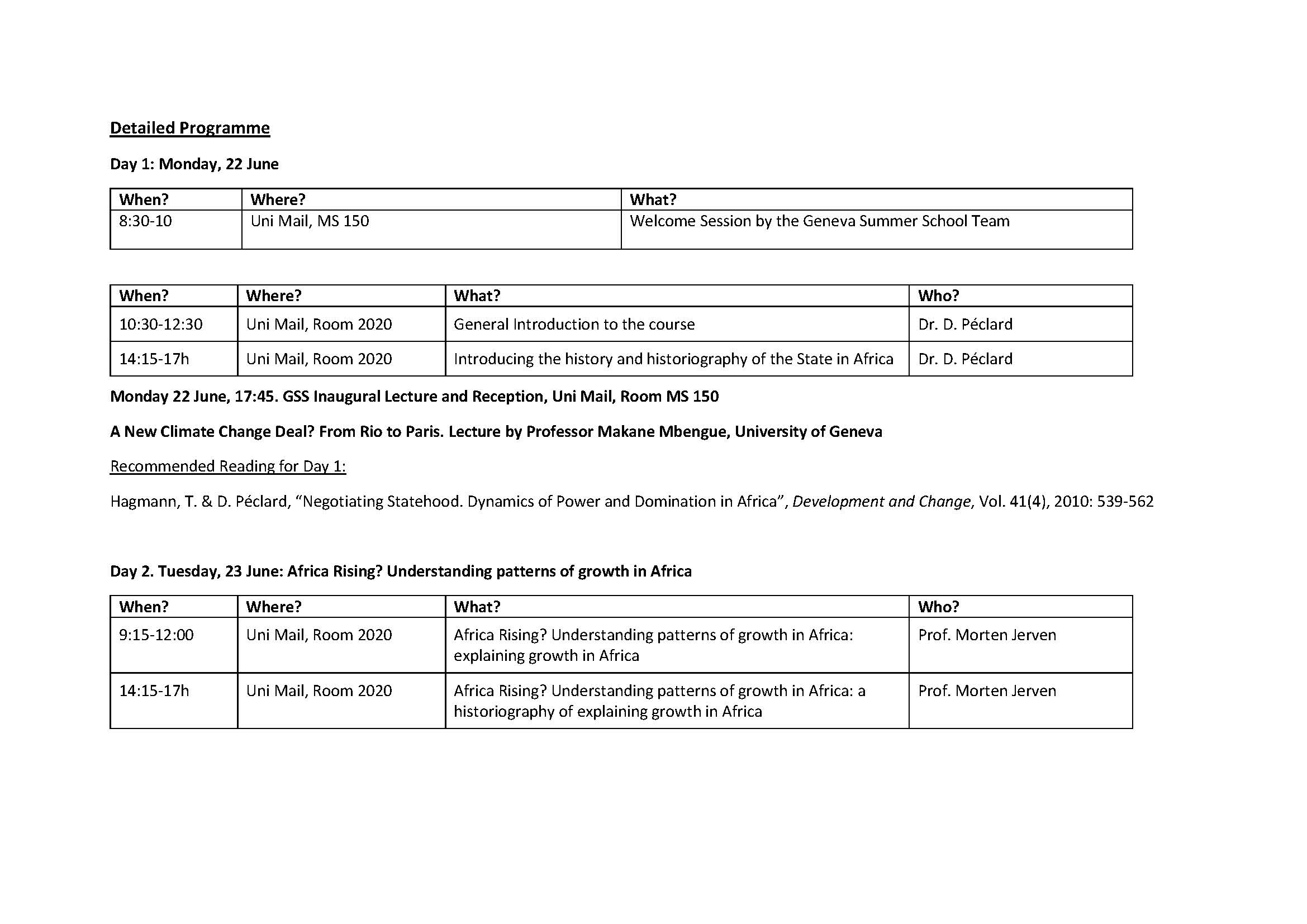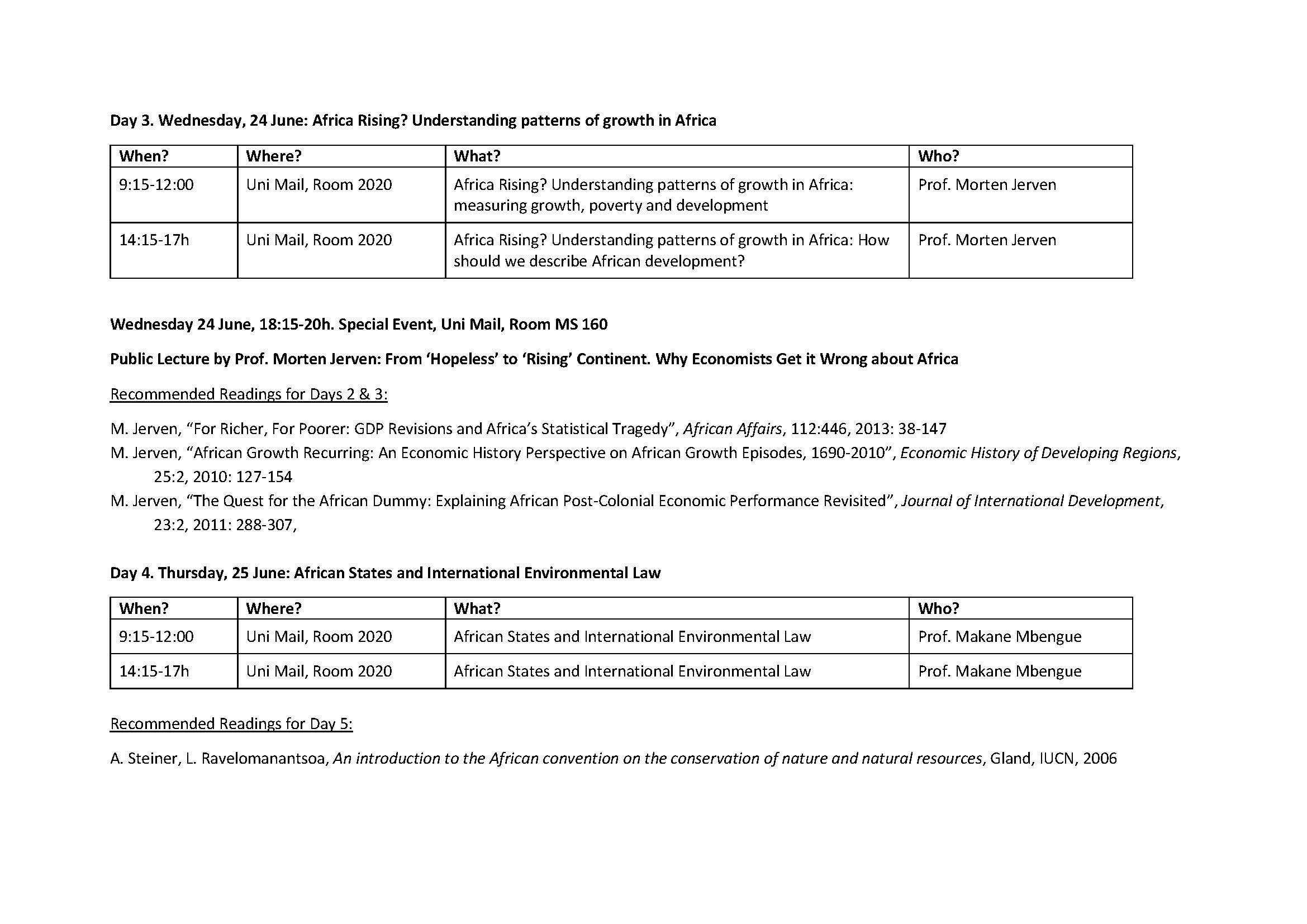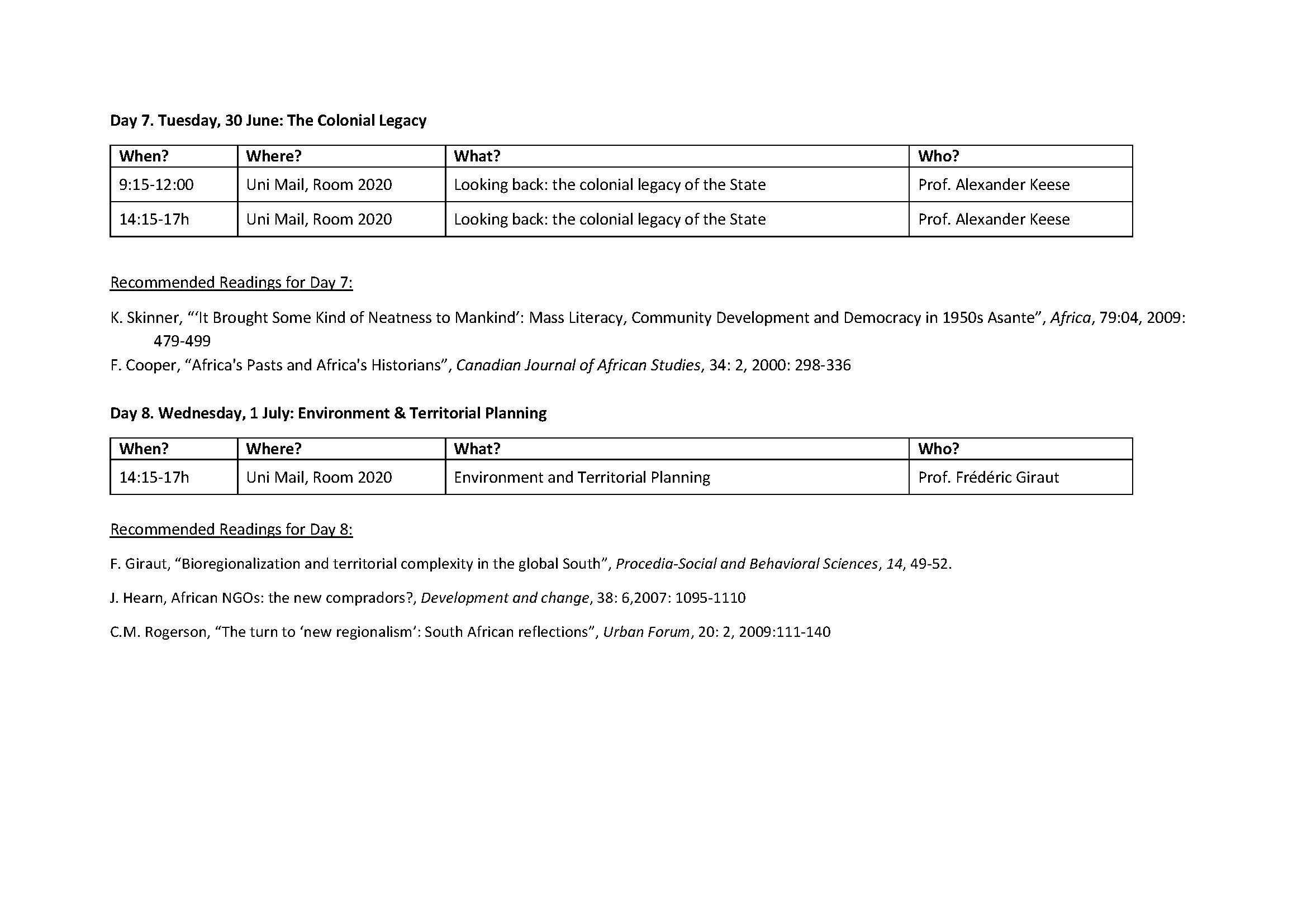
June 22 - July 3, 2015
Read Prof. Didier Péclard's interview about this course
Download 2015 Course Program
Narratives of the State in Africa since the late 1980s have been dominated by images of institutional ‘fragility’, lack of legitimacy, if not outright ‘collapse’ and ‘failure’. For some, the purportedly ‘imported’ character of the State in Africa is the main cause of its structural weakness. For others, the generalisation of violent conflicts in the continent, especially in the 1990s, widespread corruption and ‘bad governance were signs of the incapacity of African States to fulfil their role and their consequent vacuity. Echoing such ‘Afro-pessimistic’ feelings, the Economist thus labelled Africa the ‘hopeless continent’ in its May 11th 2000 edition. Recently however, unprecedented economic growth rates in many parts of the continent,fuelled in large part by high prices of raw materials on the international markets and the mineral-hungry economies of China and other emerging powers, as well as the development of an ‘African middle class’, the spectacular growth of African cities and the new scramble for African land have given rise to other narratives where Africa has moved from being ‘hopeless’ to one of the new frontiers of global capitalism.
With this course, students will be brought to critically reflect on such narratives. The course concentrates on the historicity of state formation processes in Africa and looks at how African states have developed as the dynamic product of internal and external influences and in close interaction with their own societies. Interdisciplinary in nature, the course will look at the following topics:
- From state failure to ‘Africa rising’: understanding recent changes in African states and economies;
- The longue durée of the African State: from precolonial State formations to decolonization;
- War and state formation in Africa;
- New territorialities of power: the changing geography of state-society relations;
- Economic growth vs. social development: making sense of the current boom.




Academic director: Dr. Didier Péclard
Faculty: Professors from the University of Geneva and guest scholars from Africa, Europe and North America
Contact: This email address is being protected from spambots. You need JavaScript enabled to view it.
Upper year undergraduates and MA students
Tuition Fees: 1000 CHF (for externals) / 500 CHF (for Swiss universities)
Application Deadline: May 1, 2015.


